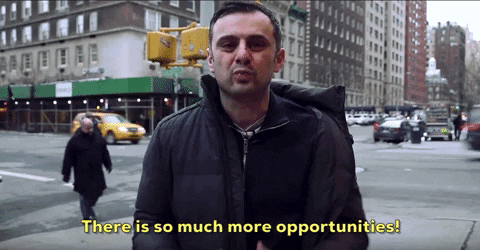- Think Week 🧠
- Posts
- Auditor is a swear word
Auditor is a swear word
Rated 18+ for crude language 🤬

If you were ever to dig through the content creators I follow, you might think I have some sort of identity crisis.
For a while now, I couldn't figure out why some of these social engines and their algos thought I would be interested in certain promoted influencers. Yet, here I am, subscribing, viewing, and reacting to their posts. Where are all my Boys with the Bus fans?
Recently, I began following Adam Aleksic, a self-proclaimed lexophile and the operator behind Etymology Nerd. He posts short-form reels on Instagram (@etymologynerd) every few days, usually featuring him holding up his phone selfie-style and enthusiastically explaining why he thinks certain Gen Alpha slang words like “rizz” or “brainrot” will fizzle out in popularity over the next few months, while others like “selfie” or “cancel” (e.g., cancel culture) have staying power.
His entertaining style hooks your attention during moments of mindless scrolling and then teaches you something about linguistics.
See for yourself. ⤵️
Disclaimer: He is qualified in the subject having studied linguistics during his undergraduate education at Harvard.
But what I found even more appealing about Etymology Nerd is that he took a topic I had no prior awareness of—linguistics, which I would have completely avoided as a college elective—and made it fascinating in the short time since I started following him. Call it expertise and knowledge, but I think what we are seeing here is actually a much greater superpower that some people either have or they don’t.
While Aleksic shows off his incredible skill with Etymology Nerd and pulls me in like bait, we see the same storytelling effect with figures like Bob Ross, who taught us the joy of painting, and Steve Irwin, who educated us on crocodiles and wildlife conservation. Most recently, Marie Kondo had her 15 seconds as she showed us her methods for tidying and folding clothes.


How to make the ordinary interesting
It's a subtlety that I think most of us discount or, at a minimum, don't clearly recognize. But to understand how these people break down seemingly boring or complicated topics into a genre that demands eyeballs while turning passersby into roaring fans—it's a lesson in gaining sponsorship, or more plainly put, a masterclass in creating interest in something otherwise considered ordinary.
Gary Vaynerchuk, widely known as "Gary Vee" and the co-founder of Resy, is celebrated for his loud, energetic, and passionate approach towards building companies and obtaining customers.
One of his most notable early successes was transforming his family's liquor store, Shopper's Discount Liquors, into an online wine business called Wine Library. By launching WineLibrary.com and starting a video blog, where he fervently reviewed wines, Gary Vee grew the business significantly, from $3 million to $60 million in annual sales. This venture helped him amass a large following and established himself as an influencer, securing million-dollar book deals.
Yet, Gary Vee was selling basic wines and liquors in an industry with nearly 50,000 retail locations in the United States alone, where all of these stores advertise similar products. What propelled Shopper's Discount Liquors and Gary Vee to experience such rapid growth?

gary vee talking about mining bitcoin in antarctica, probably
It's a lesson frequently observed in both pop culture and the business world. When someone is specialized and abnormally passionate about something, others—even those not directly involved—tend to listen a little longer. People are drawn to excitement, buzz, and, most consistently, winning attitudes.

It’s the same phenomena behind why half the baseball caps worn by teenagers in Asia bear the logos of historically successful clubs like the Dodgers or Yankees, and why Japanese baseball star Shohei Ohtani chose those Dodgers this offseason (maybe that last one was speculation). 🙄

Breaking the paradigm
Considering all this, is it possible to make a topic like compliance interesting? In reality, several opposing forces are at play.
Compliance often brings to mind audits and the humans performing these despicable assessments—the auditors—subjects that, apart from the 2016 film The Accountant with Ben Affleck, aren't frequently glamorized.
Then there are scandals—everyone recalls Enron. Enron's collapse in December 2001 due to widespread corporate fraud and accounting irregularities further tarnished the image of these auditors due to the role of one of the world’s largest accounting firms, Arthur Andersen.

Finally, there's even the stereotype of what an auditor physically looks like, portrayed in films like Office Space by characters like the Bobs.
Or worse, the image of the young graduate who immediately adopts the uniform of a brown leather shoulder messenger bag and buys five shades of a blue button-down dress shirt upon accepting his Big 4 job offer.

These are some of the challenges we face at Mastermind.
How do we foster more openness, authenticity, and, as embarrassing as it is to admit, likability within this line of work?
By changing the narrative of security audits from a necessary chore to an eagerly anticipated annual event for our clients, we might begin to chip away at this longstanding reputation—and that single shift could have compounding effects: client work becomes more enjoyable for our staff, partnerships form more naturally, customer satisfaction ratings improve, and more individuals are drawn to the field, while elevating the quality of our work product.
It's a cyclical process that continually requires fuel, and we are positioning Mastermind to be the catalyst for giving the compliance topic that much-needed boost.
So, next time, think twice before you call me or any of the others an a*ditor.
David 🧠


Reply